
Penstemon ‘Silverton’
New Plants!
PERENNIALS
| Achillea | mill. ‘Paprika | ||
| Agastache | aurantiaca ‘Coronado’ *Plant Select | ||
| Allium | ‘Millennium’ | ||
| Aquilegia | barnebeyi | ||
| Aquilegia | chrysantha | ||
| Aquilegia | coerulea | ||
| Aster | alpinus ‘Goliath’ | ||
| Aubrieta | deltoidea ‘Purple Gem’ | ||
| Aurinia | saxatilis ‘Gold Ball’ | ||
| Callirhoe | involucrata | ||
| Campanula | cochleariifolia | ||
| Campanula | poscharskyana | ||
| Centranthus | ruber | ||
| Cerastium | tomentosum | ||
| Coreopsis | verticillata ‘Moonbeam’ | ||
| Delosperma | ‘Firespinner’ *Plant Select | ||
| Delosperma | ‘Mesa Verde’ *Plant Select | ||
| Delosperma | nubigenum | ||
| Delosperma | ‘Red Mt. Flame’ *Plant Select | ||
| Delosperma | ‘Table Mountain’ *Plant Select | ||
| Dianthus | grat. ‘Firewitch’ | ||
| Epilobium | canum garrettii ‘Orange Carpet’
*Plant Select |
||
| Erigeron | formosissimum ‘Rambler’ *Plant Select | ||
| Eriogonum | umbellatum | ||
| Eriogonum | umbellatum v aureum ‘Kannah Creek’ *Plant Select | ||
| Erodium | chrysanthum *Plant Select | ||
| Fragaria | vesca americana – Wild Strawberry | ||
| Gaillardia | aristata | ||
| Galium | odoratum, Sweet Woodruff | ||
| Gaura | lindheimeri ‘Summer Breeze’ | ||
| Geranium | macrorrhizum ‘Bevan’s Variety’ | ||
| Geranium | viscosissimum | ||
| Geum | triflorum | ||
| Gypsophila | repens ‘Rosea’ | ||
| Helianthemum | ‘Wisley Pink’ | ||
| Heuchera | sanguinea ‘Splendens’ | ||
| Heuchera | micrantha ‘Palace Purple’ | ||
| Iberis | sempervirens | ||
| Liatris | ligulistylus | ||
| Liatris | punctata | ||
| Lupinus | polyphyllus ‘The Governor’ | ||
| Mirabilis | multiflora | ||
| Monarda | fistulosa v menthifolia | ||
| Monarda | ‘Gardenview Scarlet’ | ||
| Nepeta | x faassenii | ||
| Nepeta | x faassenii ‘Six Hills Giant’ | ||
| Nepeta | x faassenii ‘Walker’s Low’ | ||
| Oenothera | fremontii ‘Shimmer’ *Plant Select | ||
| Oenothera | macrocarpa | ||
| Origanum | levigatum ‘Herrenhausen’ | ||
| Paxistima | canbyi, Mountain Lover | ||
| Penstemon | linifolia coloradoensis ‘Silverton’
*Plant Select |
||
| Penstemon | mensarum | ||
| Penstemon | rostriflorus | ||
| Penstemon | xylus, Tushar Penstemon | ||
| Potentilla | neumanniana ‘Nana’ | ||
| Prunella | laciniata | ||
| Pulsatilla | vulgaris | ||
| Pulsatilla | vulgaris ‘Red Clock’ | ||
| Rudbeckia | fulgida ‘Goldsturm’ | ||
| Salvia | azurea grandiflora, Pitcher Sage | ||
| Salvia | daghestanica, Platinum Sage
*Plant Select |
||
| Salvia | x lemmonii ‘Windwalker Desert Rose’
*Plant Select |
||
| Salvia | reptans ‘Autumn Sapphire’
*Plant Select |
||
| Salvia | ‘Windwalker Royal Red’ | ||
| Santolina | chamaecyparrissus, Lavender Cotton | ||
| Saponaria | ocymoides, Rock Soapwort | ||
| Scrophularia | macarantha, Red Birds in a Tree | ||
| Sedum | acre, Evergreen Stonecrop ‘Goldmoss’ | ||
| Sedum | hybridum, Oakleaf Stonecrop | ||
| Sedum | rupestre ‘Angelina’ | ||
| Sedum | spurium ‘Red Carpet’ | ||
| Sedum | spurium ‘Voodoo’ | ||
| Sisyrichium | montanum, Mountain Blue-Eyed Grass | ||
| Solidago | canadensis ‘Golden Baby’ | ||
| Solidago | rugosa ‘Fireworks’ | ||
| Sphaeralcea | coccinea, Cowboy’s Delight | ||
| Sphaeralcea | munroana, Orange Globe Mallow | ||
| Staychs | lavandulifolia, Pink Cotton Lamb’s Ear | ||
| Teucrium | chamaedrys, Wall Germander | ||
| Thermopsis | divaricarpa, Golden Banner | ||
| Thermopsis | lupinoides ‘Golden Candles’ | ||
| Thymus | praecox ‘Albiflorus’, White Creeping Thyme | ||
| Thymus | praecox ‘Coccineus’, Red Creeping Thyme | ||
| Thymus | praecox ‘Minus’, Dwarf Creeping Thyme | ||
| Thymus | praecox pseudolanuginosus, Wooly Thyme | ||
| Tradescantia | occidentalis, Western Spiderwort | ||
| Veronica | x ‘Crystal River’ *Plant Select | ||
| Veronica | liwanensis, Turkish Speedwell | ||
| Veronica | pectinata, Wooly Speedwell | ||
| Veronica | prostrata, Prostrate Speedwell | ||
| Veronica | x ‘Snowmass’ Speedwell *Plant Select | ||
| Veronica | specata incana, Silver Speedwell | ||
| Veronica | ‘Sunny Border Blue’ | ||
| Vinca | major, Big-leaf Periwinkle | ||
| Vinca | minor ‘Bowles Variety’ | ||
| Viola | corsica, Corsican Viola | ||
| Waldesteinia | ternata, Barren Strawberry | ||

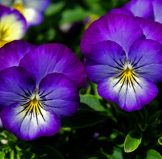
 Townsendia hookeri, pictured above, is already supporting butterflies! Also known as the Easter Daisy, it blooms for a long time – often through May. This Rocky Mountain native is drought-tolerant, is found in gravelly areas and grasslands, can withstand freezing conditions and snow, and thrives in crevice gardens. This particular one bloomed this weekend in Eve’s garden in Longmont!
Townsendia hookeri, pictured above, is already supporting butterflies! Also known as the Easter Daisy, it blooms for a long time – often through May. This Rocky Mountain native is drought-tolerant, is found in gravelly areas and grasslands, can withstand freezing conditions and snow, and thrives in crevice gardens. This particular one bloomed this weekend in Eve’s garden in Longmont! This Thursday, at 3:01AM RMT, is the Spring Equinox. When you wake up Friday, Spring will be here. For gardeners, this moment when night and day, light and darkness, are exactly in balance marks the beginning of our season of hope, and lengthening days. It’s when we spend our time looking closely for the signs of new growth, and beauty. We find it in the hellebores flowering among last season’s leaves (pictured above), the crocus and early species iris, the earliest daffodils, and fragrant hyacinths.
This Thursday, at 3:01AM RMT, is the Spring Equinox. When you wake up Friday, Spring will be here. For gardeners, this moment when night and day, light and darkness, are exactly in balance marks the beginning of our season of hope, and lengthening days. It’s when we spend our time looking closely for the signs of new growth, and beauty. We find it in the hellebores flowering among last season’s leaves (pictured above), the crocus and early species iris, the earliest daffodils, and fragrant hyacinths.

 Welcome to Harlequin’s Gardens’ 33rd year! We care about your gardening success, your health, and our planet. We have spent the winter planning, planting, ordering, cleaning, repairing and getting ready to host you, and we have seeds, seed-starting supplies, gardening tools, books, soils and soil-nourishing amendments, and a great line-up of empowering classes!
Welcome to Harlequin’s Gardens’ 33rd year! We care about your gardening success, your health, and our planet. We have spent the winter planning, planting, ordering, cleaning, repairing and getting ready to host you, and we have seeds, seed-starting supplies, gardening tools, books, soils and soil-nourishing amendments, and a great line-up of empowering classes!



 Sunny days in March offer the perfect opportunities to prepare your soil for planting. What do our soils need that they don’t already have? – oxygen-air and biology-carbon. Increasing the air and carbon in our soils support soil life which in turn supports plant life. Our tight clay soils that tend to exclude oxygen and are deficient in organic matter can use some help.
Sunny days in March offer the perfect opportunities to prepare your soil for planting. What do our soils need that they don’t already have? – oxygen-air and biology-carbon. Increasing the air and carbon in our soils support soil life which in turn supports plant life. Our tight clay soils that tend to exclude oxygen and are deficient in organic matter can use some help.
 Fire is on our minds. How to prevent it. How to curtail or control it. How to live with it. How to use it constructively. We remember the early winter Marshall Fire at the end of 2021 with feelings of grief and
Fire is on our minds. How to prevent it. How to curtail or control it. How to live with it. How to use it constructively. We remember the early winter Marshall Fire at the end of 2021 with feelings of grief and Time flies, don’t you think? Do you remember when people throughout the “developed world” anxiously awaited the arrival of the new millennium, worried by predictions that Y2K would bring a collapse of technical systems – the internet, banking, stock trading, communications – and throw everything else into chaos? And there was nothing we could do about it? It didn’t take long to see that the world as we knew it did not fall apart. Twenty-five years later, perhaps you’ve been nervously awaiting the advent of 2025 and are scared of what the new year, on many fronts, could bring. Completely understandable!
Time flies, don’t you think? Do you remember when people throughout the “developed world” anxiously awaited the arrival of the new millennium, worried by predictions that Y2K would bring a collapse of technical systems – the internet, banking, stock trading, communications – and throw everything else into chaos? And there was nothing we could do about it? It didn’t take long to see that the world as we knew it did not fall apart. Twenty-five years later, perhaps you’ve been nervously awaiting the advent of 2025 and are scared of what the new year, on many fronts, could bring. Completely understandable! With the disruption and confusion over our national health care system this month, we’re more committed than ever to sharing information on how to create your own home ‘farm-acy’. Watch our class schedule for expanded home herb garden and herbal healing classes during the growing season.
With the disruption and confusion over our national health care system this month, we’re more committed than ever to sharing information on how to create your own home ‘farm-acy’. Watch our class schedule for expanded home herb garden and herbal healing classes during the growing season. Sometimes we overdo heavier food and drink during the holidays, and our stomach suffers.
Sometimes we overdo heavier food and drink during the holidays, and our stomach suffers. Look at the world beyond the limits of your eyes with these 4x magnification binoculars that are lightweight and designed for small hands. The attached neck strap keeps the binoculars handy and can be stored in the handy carrying case when not in use.
Look at the world beyond the limits of your eyes with these 4x magnification binoculars that are lightweight and designed for small hands. The attached neck strap keeps the binoculars handy and can be stored in the handy carrying case when not in use.
 Pruning is the art and science of removing or shortening branches of a tree or shrub. If done correctly, it can prevent breakage, increase beauty and increase flowering and fruiting. To learn how to make a healthy cut, study the Shigo method of pruning, or come to one of Mikl’s pruning classes.
Pruning is the art and science of removing or shortening branches of a tree or shrub. If done correctly, it can prevent breakage, increase beauty and increase flowering and fruiting. To learn how to make a healthy cut, study the Shigo method of pruning, or come to one of Mikl’s pruning classes. If you’re baking a delicious pumpkin pie, or making a warming squash soup, don’t throw away the seeds.
If you’re baking a delicious pumpkin pie, or making a warming squash soup, don’t throw away the seeds. Are you ready to add new plants to your indoor garden this season? Our selection is excellent, with plants to suit a variety of light conditions. Did you know that winter is the dormant season for most of the non-blooming tropical plants that we grow as houseplants? We’ve assembled some tips to help them thrive in our dry indoor conditions.
Are you ready to add new plants to your indoor garden this season? Our selection is excellent, with plants to suit a variety of light conditions. Did you know that winter is the dormant season for most of the non-blooming tropical plants that we grow as houseplants? We’ve assembled some tips to help them thrive in our dry indoor conditions.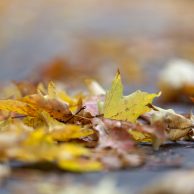 by Dan Brawner
by Dan Brawner
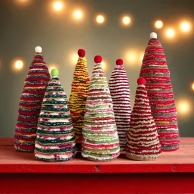 Here we are in the season of giving generously. Not all of us can afford to give lavishly, but even the humble gift of seeds can create enormous abundance. We’re talking about both literal and figurative seeds here.
Here we are in the season of giving generously. Not all of us can afford to give lavishly, but even the humble gift of seeds can create enormous abundance. We’re talking about both literal and figurative seeds here. The more challenging life becomes, the more I remind myself of what’s good and beautiful and wondrous and nourishing in life, what I can be deeply grateful for and what I will stick my neck out to protect. The list is long!
The more challenging life becomes, the more I remind myself of what’s good and beautiful and wondrous and nourishing in life, what I can be deeply grateful for and what I will stick my neck out to protect. The list is long! Eve’s “Embarrassment of Riches” Garage Sale Is Delayed
Eve’s “Embarrassment of Riches” Garage Sale Is Delayed
 At this time of year, many of you probably share with me the bittersweet feeling of closure drawing near. It’s been another immensely rewarding growing season at Harlequin’s, and we are so grateful to have had the opportunity to introduce hundreds of new Colorado gardeners to appropriate and successful materials and methods, as well as helping so many longtime, like-minded sustainable gardeners. For 32 years we have been providing pollinator-safe Colorado-appropriate plants, products, information and advice based on our ongoing research and long experience, and we look forward to carrying this service well into the future. Thank you all for your support! But we’ve extended our season and we’re not done yet!
At this time of year, many of you probably share with me the bittersweet feeling of closure drawing near. It’s been another immensely rewarding growing season at Harlequin’s, and we are so grateful to have had the opportunity to introduce hundreds of new Colorado gardeners to appropriate and successful materials and methods, as well as helping so many longtime, like-minded sustainable gardeners. For 32 years we have been providing pollinator-safe Colorado-appropriate plants, products, information and advice based on our ongoing research and long experience, and we look forward to carrying this service well into the future. Thank you all for your support! But we’ve extended our season and we’re not done yet!  This week’s warm weather aside, December is the time we cozy up indoors to dream about next season’s garden, and to decide what new techniques to try and which plants to grow. Winter is for gardening books, and we have quite a few in stock that we’d like to suggest for you. Whether you have a book club or just a comfortable chair to curl up into, these titles are sure to fire your imagination.
This week’s warm weather aside, December is the time we cozy up indoors to dream about next season’s garden, and to decide what new techniques to try and which plants to grow. Winter is for gardening books, and we have quite a few in stock that we’d like to suggest for you. Whether you have a book club or just a comfortable chair to curl up into, these titles are sure to fire your imagination.

 I have a passion for seeds, for the elegant and endlessly diverse designs of their natural packaging, their fascinating distribution and germination strategies, and for the astonishing emergence of exuberant life from even the most minute speck of a seed. I once grew a Eucalyptus gunnii tree from seed the size of a dust mote. It grew, outdoors (in Eugene, Oregon) for several years, reaching 16’ tall until an unusually heavy snowstorm broke all the branches off. And in its native Tasmania it could have reached 135 feet! In addition to collecting seeds from plants in the wild and in my pollinator garden at home, I collect seeds at this time of year from my vegetable garden to enable Harlequin’s Gardens to offer unique and commercially unavailable varieties of tomatoes (“Anasazi”) and peppers (Lanterna Piccante), wild perennial arugula, and perennial Caucasian Spinach vine.
I have a passion for seeds, for the elegant and endlessly diverse designs of their natural packaging, their fascinating distribution and germination strategies, and for the astonishing emergence of exuberant life from even the most minute speck of a seed. I once grew a Eucalyptus gunnii tree from seed the size of a dust mote. It grew, outdoors (in Eugene, Oregon) for several years, reaching 16’ tall until an unusually heavy snowstorm broke all the branches off. And in its native Tasmania it could have reached 135 feet! In addition to collecting seeds from plants in the wild and in my pollinator garden at home, I collect seeds at this time of year from my vegetable garden to enable Harlequin’s Gardens to offer unique and commercially unavailable varieties of tomatoes (“Anasazi”) and peppers (Lanterna Piccante), wild perennial arugula, and perennial Caucasian Spinach vine.


 In the late 1800s Colorado was one of the top apple-growing states in the country. Many of these ancient apple trees still exist, and together with trees planted this century, are producing more fruit than homeowners alone can harvest.
In the late 1800s Colorado was one of the top apple-growing states in the country. Many of these ancient apple trees still exist, and together with trees planted this century, are producing more fruit than homeowners alone can harvest. Sometimes we are running so fast that we forget to slow down and see what’s ready to come out for sale. This week we are happily surprised to see that we have fresh stock of lots of premium native shrubs that we grew in convenient, affordable 2-gallon pots. We’re making them available at regular price (not discounted for our fall sale) – read more below.
Sometimes we are running so fast that we forget to slow down and see what’s ready to come out for sale. This week we are happily surprised to see that we have fresh stock of lots of premium native shrubs that we grew in convenient, affordable 2-gallon pots. We’re making them available at regular price (not discounted for our fall sale) – read more below. One of the beautiful alternatives to a standard, water-thirsty, solid green, mowed Kentucky Bluegrass lawn is a naturalistic meadow composed of low-water clumping grasses and wildflowers.
One of the beautiful alternatives to a standard, water-thirsty, solid green, mowed Kentucky Bluegrass lawn is a naturalistic meadow composed of low-water clumping grasses and wildflowers. We cut, dig and store our dahlia tubers just after the first frost. Our friends at Arrowhead Dahlias have easy instructions.
We cut, dig and store our dahlia tubers just after the first frost. Our friends at Arrowhead Dahlias have easy instructions. We still have Lavender (Munstead, Buena Vista, Hidcote and Grosso), and if you want to plant them this season, get them this week on sale for 20% off! Any plants left after that will be potted up for next year. Because it is evergreen, newly planted lavender is more sensitive to hard frost than many other hardy perennials, so to give them a chance to establish before very cold weather arrives, plant them NOW. If you garden at an elevation higher than 6,000’, we recommend waiting to plant lavender next spring.
We still have Lavender (Munstead, Buena Vista, Hidcote and Grosso), and if you want to plant them this season, get them this week on sale for 20% off! Any plants left after that will be potted up for next year. Because it is evergreen, newly planted lavender is more sensitive to hard frost than many other hardy perennials, so to give them a chance to establish before very cold weather arrives, plant them NOW. If you garden at an elevation higher than 6,000’, we recommend waiting to plant lavender next spring. Designing a garden or planting bed can be a daunting project without the knowledge of where to start. These steps can help you develop a successful planting design for your garden the first time around. And if you’ve taken these steps, we can give you optimal assistance when you come to Harlequin’s for your plants, soils and products. Please note that larger spaces, new builds or landscapes that need full renovations will need more preliminary work to determine placement of areas for people moving through the yard, retaining or screening views, hardscape design (patios & walkways) and other important planning steps.
Designing a garden or planting bed can be a daunting project without the knowledge of where to start. These steps can help you develop a successful planting design for your garden the first time around. And if you’ve taken these steps, we can give you optimal assistance when you come to Harlequin’s for your plants, soils and products. Please note that larger spaces, new builds or landscapes that need full renovations will need more preliminary work to determine placement of areas for people moving through the yard, retaining or screening views, hardscape design (patios & walkways) and other important planning steps.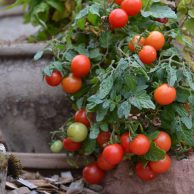

 We’ve got both Hard-neck and Soft-neck varieties! Get your garlic ‘seed’ bulbs NOW for planting from mid-October to mid-November!
We’ve got both Hard-neck and Soft-neck varieties! Get your garlic ‘seed’ bulbs NOW for planting from mid-October to mid-November!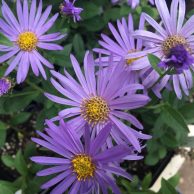 The end of summer doesn’t mean the end to color in the garden, on the contrary, you can plan and plant now for a vibrant wave of color, and habitat for our insects and birds, that continues all the way to hard frost! From native and water-wise perennials and shrubs, to trees (including fruit trees) and grasses, the selection is vast.
The end of summer doesn’t mean the end to color in the garden, on the contrary, you can plan and plant now for a vibrant wave of color, and habitat for our insects and birds, that continues all the way to hard frost! From native and water-wise perennials and shrubs, to trees (including fruit trees) and grasses, the selection is vast. A grove of Rocky Mountain Bee Plant, four to six feet tall, has grown up alongside my driveway, where I almost never water, and is now in its full glory. From dawn to dusk, the buzz of pollinators at work is intense; honeybees, bumblebees large, medium and small, plus sweat bees, hoverflies, little tiny bees and wasps, constantly trading places, collecting pollen and sipping nectar. Yesterday, as I made my way slowly and carefully past the grove to get to my car door, one of the abovementioned made a wrong turn and found herself between my capri pants and my thigh, and panicked. The sting was painful for a few minutes, no big deal, but may have been fatal for the unwitting trespasser.
A grove of Rocky Mountain Bee Plant, four to six feet tall, has grown up alongside my driveway, where I almost never water, and is now in its full glory. From dawn to dusk, the buzz of pollinators at work is intense; honeybees, bumblebees large, medium and small, plus sweat bees, hoverflies, little tiny bees and wasps, constantly trading places, collecting pollen and sipping nectar. Yesterday, as I made my way slowly and carefully past the grove to get to my car door, one of the abovementioned made a wrong turn and found herself between my capri pants and my thigh, and panicked. The sting was painful for a few minutes, no big deal, but may have been fatal for the unwitting trespasser.

 Your Fall Vegetable Garden Starts Here!
Your Fall Vegetable Garden Starts Here!
 The pickling and slicing cucumber starts from Harlequin’s Gardens are now producing a bounty of cucumbers in community gardens! This salad is easy to make and great for a hot summer day!
The pickling and slicing cucumber starts from Harlequin’s Gardens are now producing a bounty of cucumbers in community gardens! This salad is easy to make and great for a hot summer day! As a gardener and as a person with very limited heat tolerance, I am thrilled that the autumnal equinox is just a few weeks away! Late summer through November is my favorite and most successful time to plant nearly all types of perennials and woody plants. As heat, sun and evaporation are reduced, the new transplants can establish more quickly and with less stress. They don’t need as much water and shade, so in the fall I can plant in the most exposed, hot and challenging parts of my garden. And thank goodness, because I’ve got dozens of plants still in pots, waiting for gentler planting conditions. And at Harlequin’s, we have a steady stream of late ‘newcomers’ arriving on our tables – beautifully grown plants that are just now ready for sale – and on sale – so come take a look!
As a gardener and as a person with very limited heat tolerance, I am thrilled that the autumnal equinox is just a few weeks away! Late summer through November is my favorite and most successful time to plant nearly all types of perennials and woody plants. As heat, sun and evaporation are reduced, the new transplants can establish more quickly and with less stress. They don’t need as much water and shade, so in the fall I can plant in the most exposed, hot and challenging parts of my garden. And thank goodness, because I’ve got dozens of plants still in pots, waiting for gentler planting conditions. And at Harlequin’s, we have a steady stream of late ‘newcomers’ arriving on our tables – beautifully grown plants that are just now ready for sale – and on sale – so come take a look!